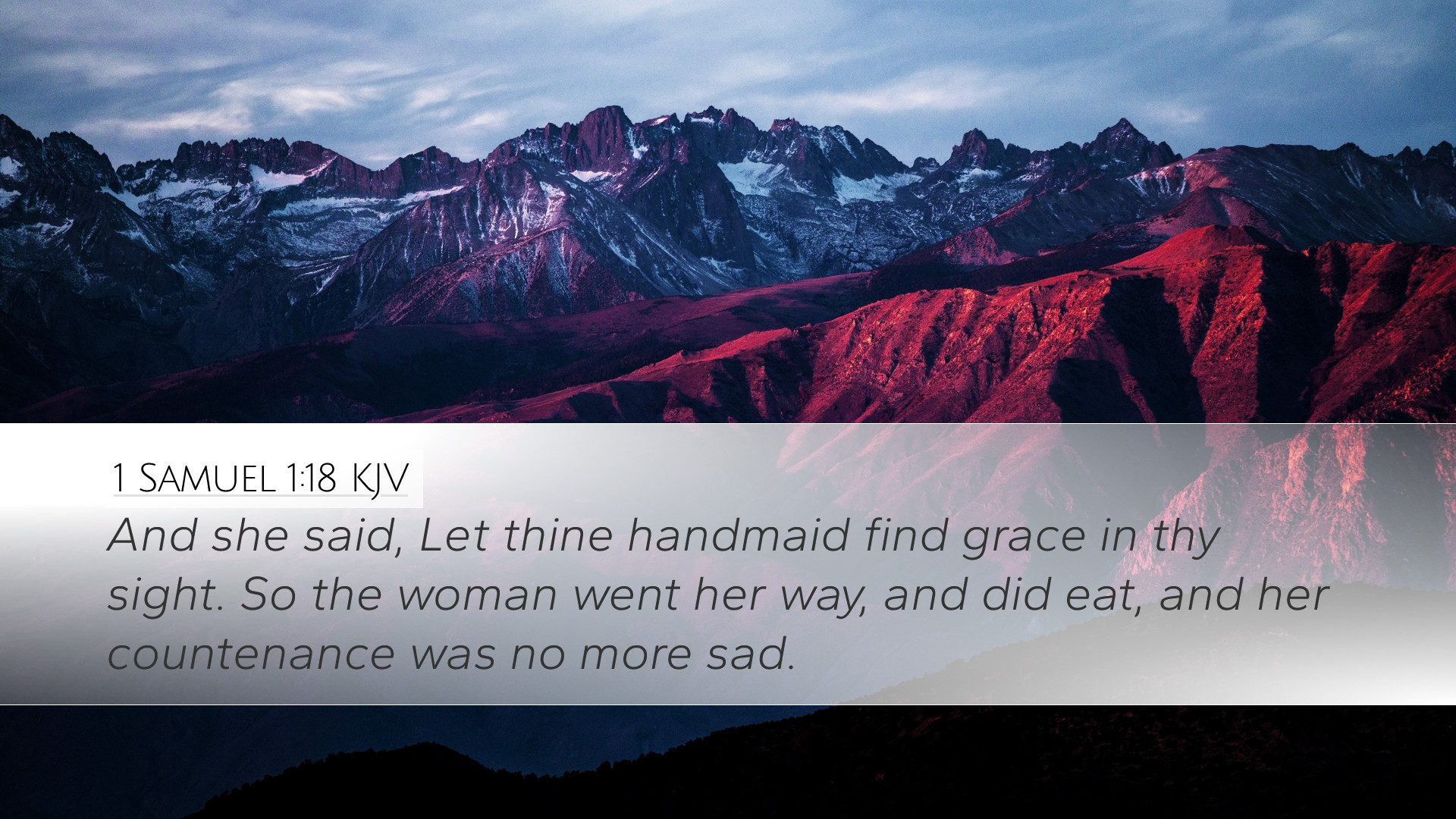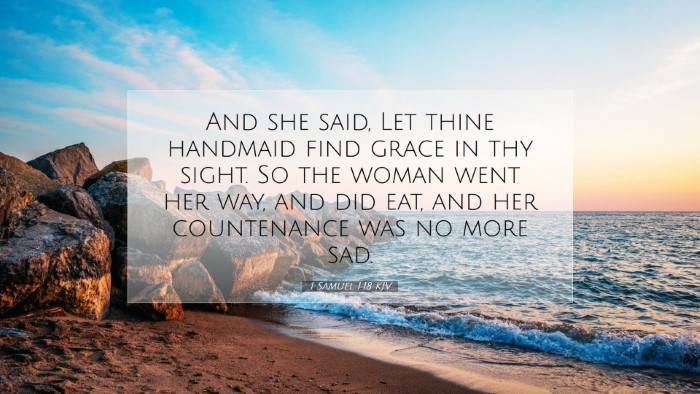Commentary on 1 Samuel 1:18
Verse Reference: 1 Samuel 1:18 - "And she said, Let thine handmaid find grace in thy sight. So the woman went her way, and did eat, and her countenance was no more sad."
Introduction
The narrative of Hannah in 1 Samuel presents profound insights into faith, prayer, and divine intervention. This particular verse encapsulates the moment of transformation for Hannah as she moves from distress to hope. Public domain commentaries serve to illuminate the depth of this passage, showcasing its relevance for pastors, theologians, and scholars.
Contextual Analysis
This verse occurs within the larger context of Hannah's desperate plea for a child. Previously, she had endured great anguish due to her barrenness and the taunts of her rival, Peninnah. The setting is crucial, as it establishes the emotional turmoil that leads to Hannah's fervent prayer and subsequent encounter with Eli, the priest.
Matthew Henry's Commentary
Matthew Henry highlights the transformation in Hannah's demeanor as a pivotal moment. He notes, "Hannah finds grace in the eyes of Eli, which greatly comforts her; it signifies the assurance she receives that her prayers are not in vain."
- Faith Over Fear: Henry emphasizes the role of faith in Hannah's life, suggesting that her countenance reflects her newfound faith rather than her circumstances.
- Change in Spirit: The shift to eating and her sadness dissipating signifies a significant internal change, reinforcing the power of prayer and divine reassurance.
Albert Barnes' Perspective
Albert Barnes provides additional depth by interpreting Hannah's response not just as relief but as a testament to her faith. He comments, "Her reliance on God is evident as she turns from despair to eating, signifying her acceptance of God's will."
- Grace Found: Barnes notes that Hannah's plea for grace is a profound acknowledgment of her humble position before God.
- Transition to Nourishment: The act of eating symbolizes renewal and the importance of physical sustenance reflecting spiritual nourishment.
Adam Clarke's Insights
Adam Clarke further explores the emotional and spiritual dynamics at play in Hannah’s experience. He observes, "Her sadness transformed into joy comes from her encounter with God through Eli's declaration."
- Divine Assurance: Clarke discusses the significance of Eli’s blessings as a means of conveying God’s approval and assurance to Hannah.
- Internal Peace: He highlights the peace that overwhelms Hannah, showing that divine intervention brings profound emotional healing.
Theological Implications
This verse is rich with theological implications regarding prayer, faith, and God's providence. It provides a template for believers on how to approach God in their moments of despair.
- The Nature of Prayer: Hannah's approach to God demonstrates earnest seeking, a fundamental aspect of a relationship with the Divine.
- The Timing of God: Hannah's story illustrates that God's answers may not align with human expectations, yet His timing is perfect.
Application for Pastoral Ministry
For pastors and church leaders, this verse serves as a reminder of the transformative power of prayer. It encourages leaders to guide congregants in expressing their needs to God with sincerity and faith.
- Encouragement of the Weary: Like Hannah, believers may present their struggles before the Lord, finding solace in prayer.
- Building Community Support: Pastors can foster environments where individuals support one another spiritually, as Eli did for Hannah.
Conclusion
1 Samuel 1:18 is a profound testament to the journey from despair to hope through faith and divine reassurance. The insights from public domain commentaries enrich our understanding and invite deeper reflection on prayer’s transformative nature.


